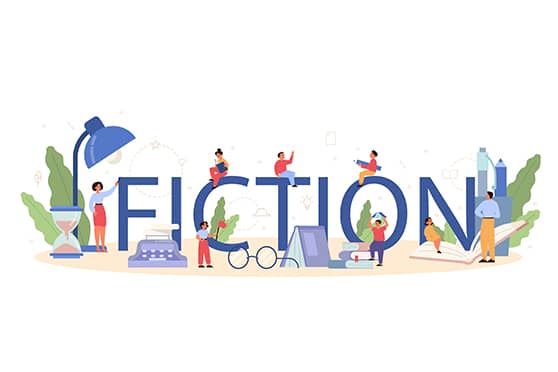Fiction-writing workshop helps students develop communication skills and shape personality


If reading opens one’s window to the world, writing helps one look within. Schools are increasingly underlining the need for students to develop good writing skills to aid communication and development.
Readomania, a Delhi-based publishing house, has been conducting writing workshops for students since 2017. It has already held over 30 workshops for 150+ students.
The sessions, which have gone online since the pandemic, are aimed at teaching the young participants the basics of storytelling. It all began with a story-writing workshop but with time the sessions have become longer and more structured.
“Reading is an important component of the course, which includes developing a storyline and a plot, creating a memorable character and a good setting for a story, using the best narrative sequencing, thinking from a reader’s perspective, self-editing and research.” said Dipankar Mukherjee, publisher and director, Readomania Publishing.
Schools and colleges in Delhi, Hyderabad, Bangalore and Dubai have tied up with Readomania for young authors’ programmes. Two schools in Kolkata are in talks with the publishing house for starting similar workshops.
Why schools sign up
Students at Basava International School, New Delhi, have been attending the workshops during their summer break for the past two years.
“We introduced the workshops last year and 10 students took part in the first year. The response from both students and parents was amazing and so we decided to carry on. Twelve students from Classes IX to XII participated in the workshop this year. The budding writers from our school got an opportunity to fine-tune and sharpen their skills,” said Pragya Sharma, Faculty of English, Basava International School.
Teachers at Lotus Valley International School, Noida, felt the workshops would be a good way to rekindle interest in language. “In the higher classes, many students don’t take language studies too seriously and are more focused on science and social science subjects. So, it is a way to remind them that English, too, can have a commercial aspect. Mentors took additional sessions for the students after completing the course. There were a few virtual interactive sessions as well where authors spoke to the children and were introduced to an online forum where they can share ideas and interact for the next one year,” said Sukriti Roy, the head of the Department of English and Foreign Languages, Lotus Valley International School.
How to register
Students can register for the workshops through their schools or individually. Applicants are selected on the basis of their creative thinking skills. They are given a few abstract components and asked to weave a story around them.
The workshops are divided into three age groups — Classes VI to VIII, IX to XII and college and above.
The length of the modules varies depending on the age group and intensity. The most elaborative and comprehensive modules stretch over 15 hours — an hour each day or two hours every weekend. There are also weekend programmes and an 8-hour condensed programme spread over two weekends. The content and structure of the workshops can also be adjusted depending on the needs and demands of the institution.
The workshop fees range from Rs 3,000 to Rs 15,000 depending on the length and intensity.
Before the pandemic, a maximum of 35 students could enrol for each offline batch but not more than 15 participants are allowed in each virtual session so that it is easier to interact. ‘
Publish your book
The part about the workshops the students love is that their writings are compiled into a book and published. For Arnava Garg, a Class XII science student of Lotus Valley International School, Noida, the young authors’ programme was a refreshing experience. “It was initially difficult to convince my parents to allow me to join the workshop but once they saw the published book, they were happy too.”
The workshops are designed to develops skills such as problem-solving, empathy, ability to frame a unique plot idea and form a structural situation.
Sara Srivastava, a Class X student of Basava International School, found the workshop to be rewarding. “I had ideas before but did not know how to go about it. It was incredible to see how much effort goes into publishing a book. The instructors were extremely accepting and would listen to our ideas and that’s one thing teenagers look up to.”
The students are usually trained by teachers, who have had an experience in teaching literature, creative writing or publishing. Published authors, too, guide the students.